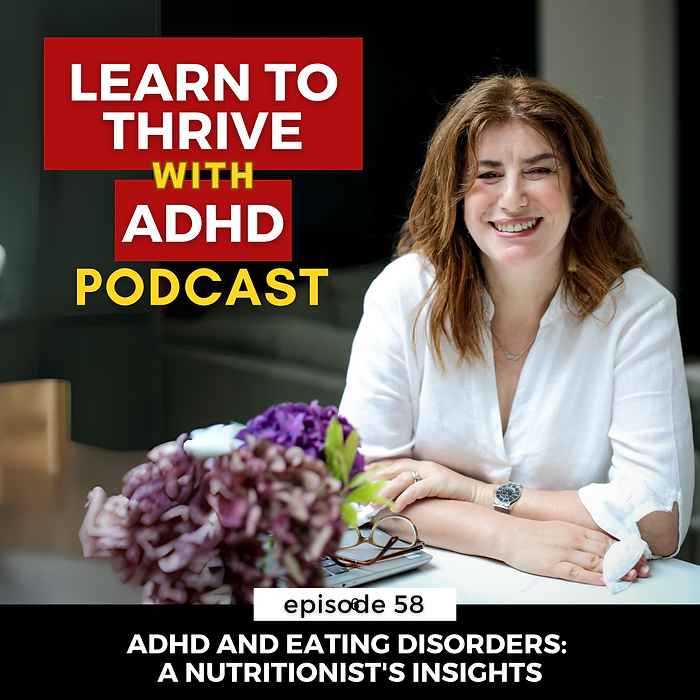Are you curious about the surprising connection between ADHD and disordered eating? In this eye-opening episode, Marcelle Rose, a registered nutritionist, coach, and eating disorder specialist, shares her expertise on how ADHD affects eating habits and offers valuable strategies for developing a healthier relationship with food. She delves into the challenges of binge eating, the impact of ADHD medication on appetite, and practical approaches to mindful eating.
Learn how Marcelle’s approach to nutrition and eating psychology has transformed lives by addressing the unique needs of individuals with ADHD. Discover how understanding your body’s signals, implementing simple meal planning strategies, and embracing mindful eating practices can lead to a more balanced and satisfying relationship with food, regardless of your neurodiversity.
What you’ll learn:
- The unexpected link between ADHD and binge eating disorders
- How to recognize and respond to your body’s hunger cues effectively
- Practical strategies for meal planning and preparation with ADHD
- The effects of ADHD medication on appetite and how to manage them
- Techniques for breaking the cycle of restrictive eating and bingeing
- The importance of regular, balanced meals for individuals with ADHD
- How to use a hunger scale to promote mindful eating
- The role of dopamine in ADHD and its influence on eating behaviors
ADHD & Eating Disorder
Throughout the episode, Marcelle shares insightful stories of how understanding the ADHD-eating connection has helped individuals overcome personal challenges, from medication-induced appetite suppression to binge eating episodes. She highlights the power of mindful eating practices and balanced nutrition as ways to rewire eating habits, build a healthier relationship with food, and find fulfillment.
Whether you’re struggling with disordered eating or simply looking to improve your eating habits with ADHD, Marcelle’s advice will encourage you to explore a more balanced and mindful approach to nutrition and self-care.
“We expect on the way that there are going to be bumps. You might still binge initially, but gradually it will be more spread out and less severe as you go along.” – Marcelle Rose
Marcelle and Mande explore practical steps you can take to incorporate healthier eating habits into your daily routine. Whether it’s assembling simple, nutritious meals or using a hunger scale, you’ll learn how small actions can make a big impact on your relationship with food and overall well-being.
Useful Links Mentioned:
- Learn more about private coaching with Mande: https://learntothrivewithadhd.com/services/
- Free Resources: https://learntothrivewithadhd.com/freeresources/
- Website: https://www.learntothrivewithadhd.com/
- LinkTree: https://linktr.ee/learntothrivewithadhd
- Instagram: https://www.instagram.com/learntothrivewithadhd/
- Facebook: https://www.facebook.com/learntothrivewithadhd/
- Learn more about Marcelle’s nutrition services: www.marcellerosenutrition.co.uk
- Follow Marcelle on Instagram: @marcellerosenutrition
- Join Marcelle’s Facebook group: Food Freedom Collective
- Look out for Marcelle’s upcoming book: The Binge Freedom Method
Embrace the journey towards a healthier relationship with food and your body! This episode offers practical tips and inspiration for anyone looking to improve their eating habits, especially those with ADHD. Whether you’re dealing with binge eating, emotional eating, or simply want to cultivate more mindful eating practices, Marcelle’s insights can help you make positive changes in your life.
Share your journey towards food freedom with us in the comments or on social media or send me a text message using the link above. We’d love to hear how you’re improving your relationship with food and nutrition!
#ADHDNutrition #EatingDisorderRecovery #MindfulEating #ADHDWellness #BingeEatingSupport #NutritionalTherapy #FoodFreedom #ADHDStrategies #MentalHealthAwareness #BalancedEating





